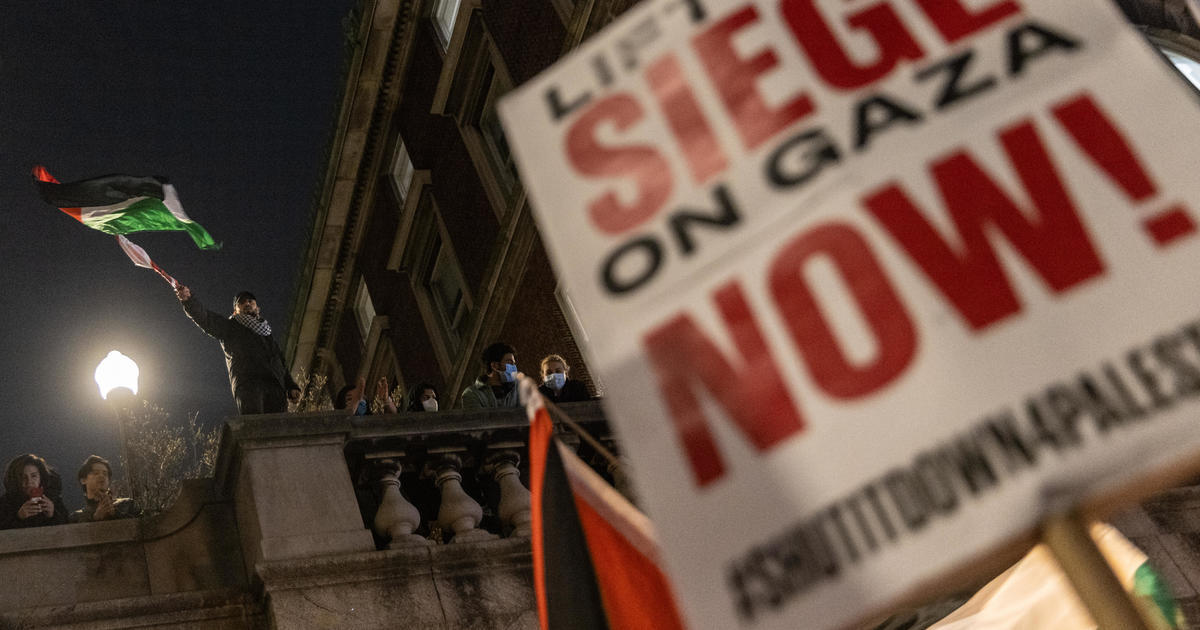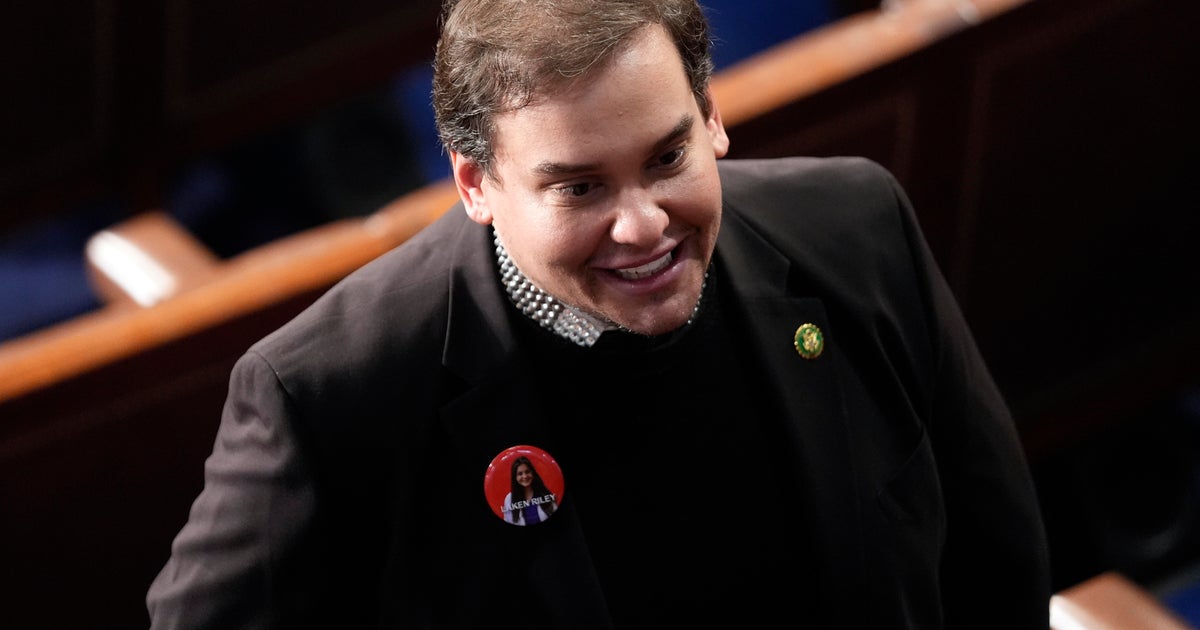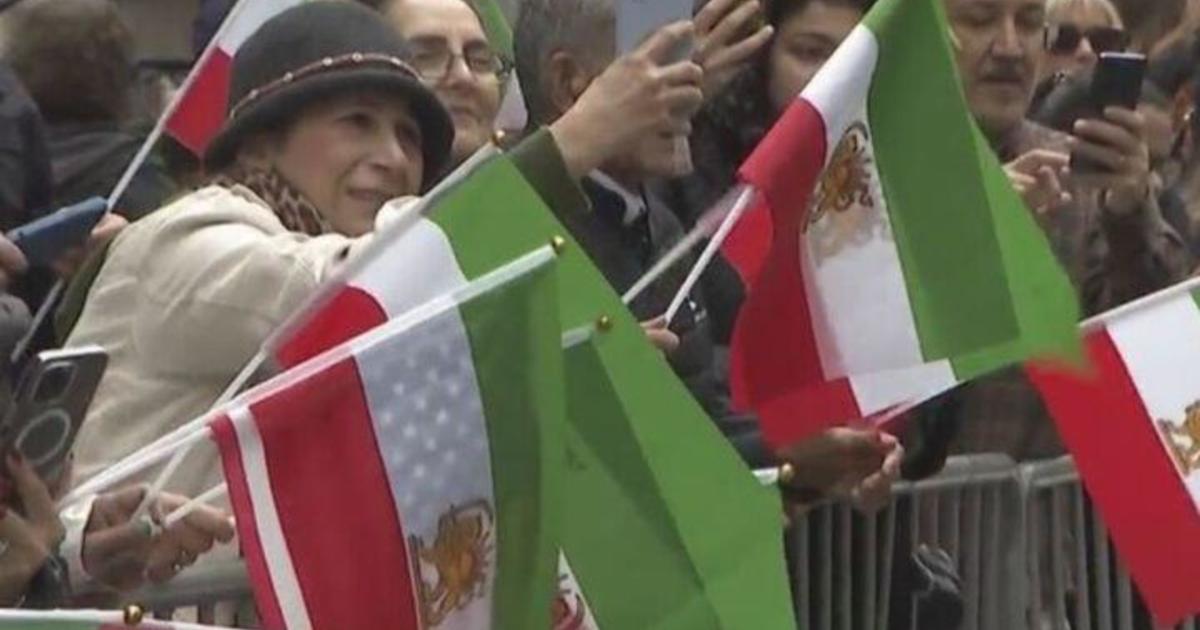President Trump Withdraws U.S. From 'Defective' Iran Nuclear Deal
WASHINGTON (CBSNewYork/AP) -- President Donald Trump announced on Tuesday the United States would withdraw from the Iran nuclear deal.
"America will not be held hostage by nuclear blackmail. We will not allow American cities to be threatened with destruction, and we will not allow a regime that chants 'death to America' to gain access to the most deadly weapons on earth," the president said.
The 2015 agreement, which was negotiated by the Obama administration and included Germany, France and Britain, had lifted most U.S. and international economic sanctions against Iran. In exchange, Iran agreed to restrictions on its nuclear program, making it impossible to produce a bomb and establishing rigorous inspections.
Trump said the deal was "defective at its core" and called it "a great embarrassment to me as a citizen and to all citizens of the Untied States."
"In theory, the so-called Iran deal was supposed to protect the United States and our allies from the lunacy of an Iranian nuclear bomb – a weapon that will only endanger the survival of the Iranian regime," he said. "In fact, the deal allowed Iran to continue enriching uranium and over time reach the brink of a nuclear breakout."
The president said the U.S. will "institute the highest level of economic sanctions" against Iran, a country he called "the leading state sponsor of terror."
"It exports dangerous missiles, fuels conflicts across the Middle East and supports terrorists, proxies and militias, such as Hezbollah, Hamas, the Taliban and Al-Qaeda," he said.
U.S. allies in Europe had tried to keep him in and lamented his move to abandon it. Iran's leader ominously warned his country might "start enriching uranium more than before."
The sanctions seek to punish Iran for its nuclear program by limiting its ability to sell oil or do business overseas, affecting a wide range of Iranian economic sectors and individuals.
Major companies in the U.S. and Europe could be hurt, too. Treasury Secretary Steven Mnuchin said that licenses held by Boeing and its European competitor Airbus to sell billions of dollars in commercial jetliners to Iran will be revoked. Certain exemptions are to be negotiated, but Mnuchin refused to discuss what products might qualify.
He said the sanctions will sharply curtail sales of oil by Iran, which is currently the world's fifth largest oil producer. Mnuchin said he didn't expect oil prices to rise sharply, forecasting that other producers will step up production.
Iran's government must now decide whether to follow the U.S. and withdraw or try to salvage what's left with the Europeans. Iranian President Hassan Rouhani said he was sending his foreign minister to the remaining countries but warned there was only a short time to negotiate with them. He also hinted he may soon restart his country's nuclear program in the wake of Trump's decision.
The administration said it would re-impose sanctions on Iran immediately but allow grace periods for businesses to wind down activity. Companies and banks doing business with Iran will have to scramble to extricate themselves or run afoul of the U.S. government.
In a Facebook post, former President Barack Obama called the decision to withdraw "a serious mistake."
"There are few issues more important to the security of the United States than the potential spread of nuclear weapons, or the potential for even more destructive war in the Middle East. That's why the United States negotiated the Joint Comprehensive Plan of Action (JCPOA) in the first place," the post read in part.
Yet nations like Israel and Saudi Arabia that loathed the deal saw the action as a sign the United States is returning to a more skeptical, less trusting approach to dealing with adversaries.
Israeli Prime Minister Benjamin Netanyahu welcomed Trump's announcement as a "historic move."
Trump, who repeatedly criticized the accord during his presidential campaign, said Tuesday that documents recently released by Netanyahu showed Iran had attempted to develop a nuclear bomb in the previous decade, especially before 2003. Although Trump gave no explicit evidence that Iran violated the deal, he said Iran had clearly lied in the past and could not be trusted.
Iran has denied ever pursuing nuclear arms.
In light of the president's decision, there are new concerns that Iran might strike Israel from Syria. Israeli defense forces tweeted that they "detected irregular Iranian activity in Syria and is preparing the civilian population on the Golan Heights accordingly, as well as defense systems. Any aggression against Israel will be met with a severe response."
Syrian state-run TV claimed they shot down two missiles from Israel near Demascus.
"Since the deal, we've seen Iran aggression grow every day in Iraq, in Lebanon, in Yemen, in Gaza, and most of all in Syria where Iran is trying to establish military bases in Syria to attack Israel," Netanyahu said.
Meanwhile, there was a predictably mixed reaction from Congress. Senate Majority Leader Mitch McConnell, a Kentucky Republican, said the Iran deal "was flawed from the beginning," and he looked forward to working with Trump on next steps. House Minority Leader Nancy Pelosi, a California Democrat, slammed Trump in a statement, saying this "rash decision isolates America, not Iran."
The man who brokered the deal, former Secretary of State John Kerry, said the world is a safer place with it.
"Why on earth would you voluntarily, by choice, decide we're going to pull out?" he said.
In a burst of last-minute diplomacy, punctuated by a visit by Britain's top diplomat, the deal's European members had given ground on many of Trump's demands for reworking the accord, according to officials, diplomats and others briefed on the negotiations. Yet the Europeans realized he was unpersuaded.
Trump spoke with French President Macron and Chinese leader Xi Jinping about his decision Tuesday. Hours before the announcement, European countries met in Brussels with Iran's deputy foreign minister for political affairs, Abbas Araghchi.
In Iran, many are deeply concerned about how Trump's decision could affect the already struggling economy. In Tehran, Rouhani sought to calm nerves, smiling as he appeared at a petroleum expo. He didn't name Trump directly, but emphasized that Iran continued to seek "engagement with the world."
The first 15 months of Trump's presidency have been filled with many "last chances" for the Iran deal in which he's punted the decision for another few months, and then another. As he left his announcement Tuesday, he predicted that Iranians would someday "want to make a new and lasting deal" and that "when they do, I am ready, willing and able."
Even Trump's secretary of state and the U.N. agency that monitors nuclear compliance agree that Iran, so far, has lived up to its side of the deal. But the deal's critics, such as Israel, the Gulf Arab states and many Republicans, say it's a giveaway to Tehran that ultimately would pave the way to a nuclear-armed Iran.
Although the U.S. and Europeans made progress on ballistic missiles and inspections, there were disagreements over extending the life of the deal and how to trigger additional penalties if Iran were found in violation, U.S. officials and European diplomats have said.
Local Jewish organizations praised the president's move. The American Jewish Congress called it a "necessary message to Iran," while the American Israel Public Affairs Committee (AIPAC) says the deal's shortcomings needed to be fixed.
(© Copyright 2018 CBS Broadcasting Inc. All Rights Reserved. The Associated Press contributed to this report.)



